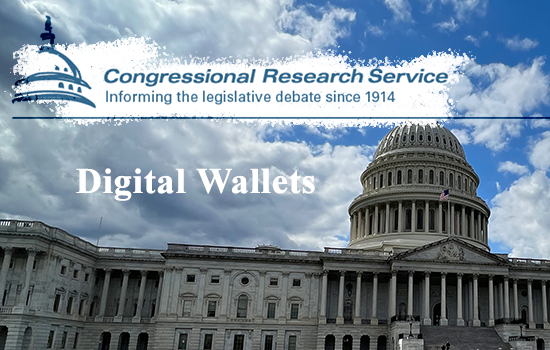In a report from the non-partisan Congressional Research Service published on Monday, Congress gets a look at the digital wallet landscape as lawmakers consider the implications ranging from anti-money laundering (AML) laws to consumer privacy.
Titled “Digital Wallets and Selected Policy Issues” (PDF here), CRS analysts Paul Tierno and Andrew Scott outline the three types of cryptocurrency wallets beginning with custodial wallets which “execute digital asset transactions on the account holder’s behalf and log them on the custodian’s books (or ‘offchain’) rather than on the distributed ledger blockchain of the coin.”
What are likely of more interest to lawmakers are the other two options: non-custodial wallets and cold-storage wallets which offer more privacy and are perceived to be harder to track by authorities concerned about criminal enterprises whether by individuals, groups or nation states.
Policy considerations for Congress according to CRS:
-
- Data Privacy and Security
- Consumer Protection and Investor Protection
- Systemic Risk and Market Power
- Financial Inclusion
In the final bullet, the analysts suggest financial inclusion may not be as relevant to the United States given that “the majority of consumers have access to bank accounts and other financial services, [and] digital wallets may serve only as an ancillary or complementary good.”
The irony is the presumption that U.S. consumers who have access to banks are satisfied with the current banking system. Isn’t this why a cryptocurrency such as Bitcoin was created, after all? They want something new which includes and empowers.
Get more:
-
- Resources – blockchain tipsheet

